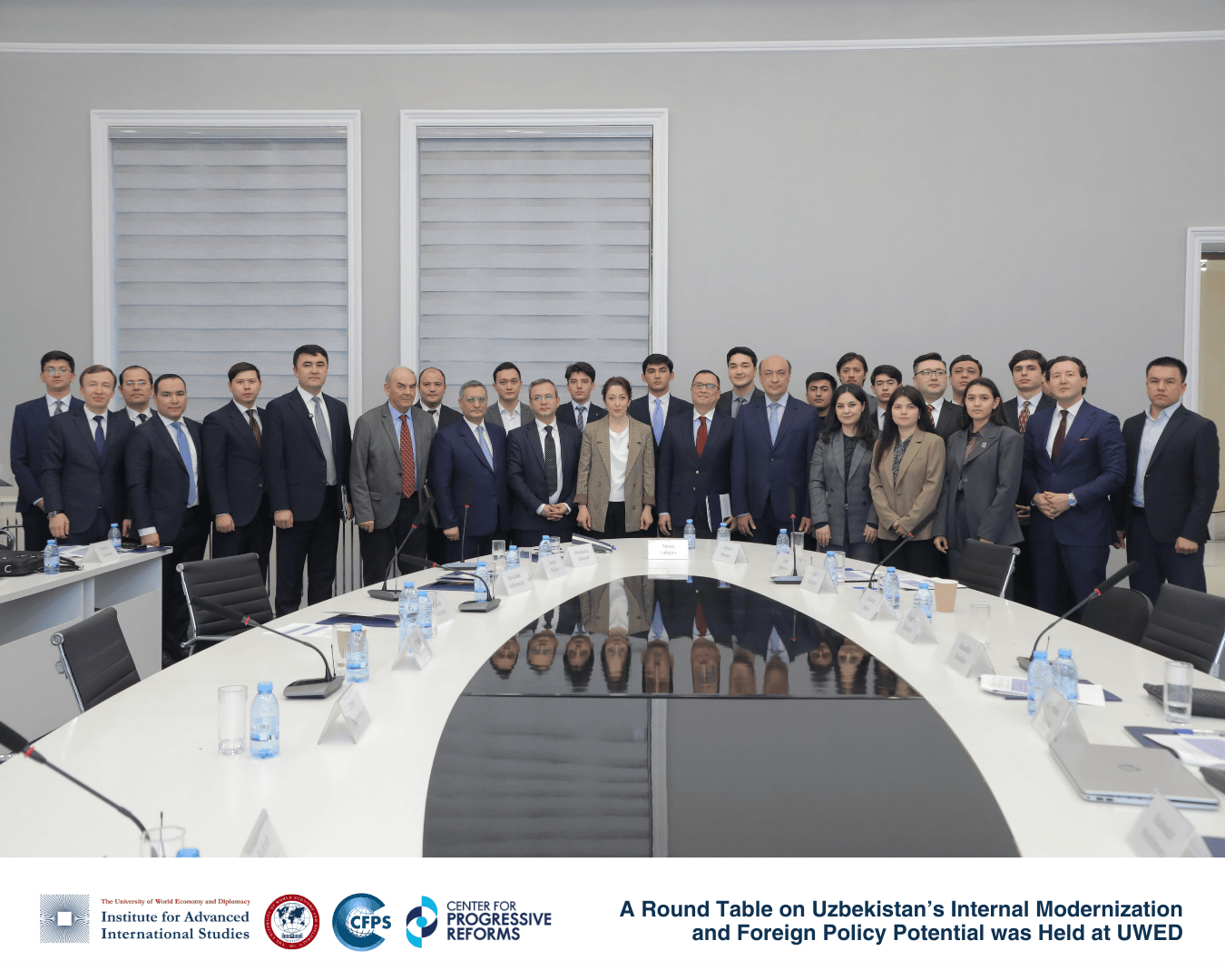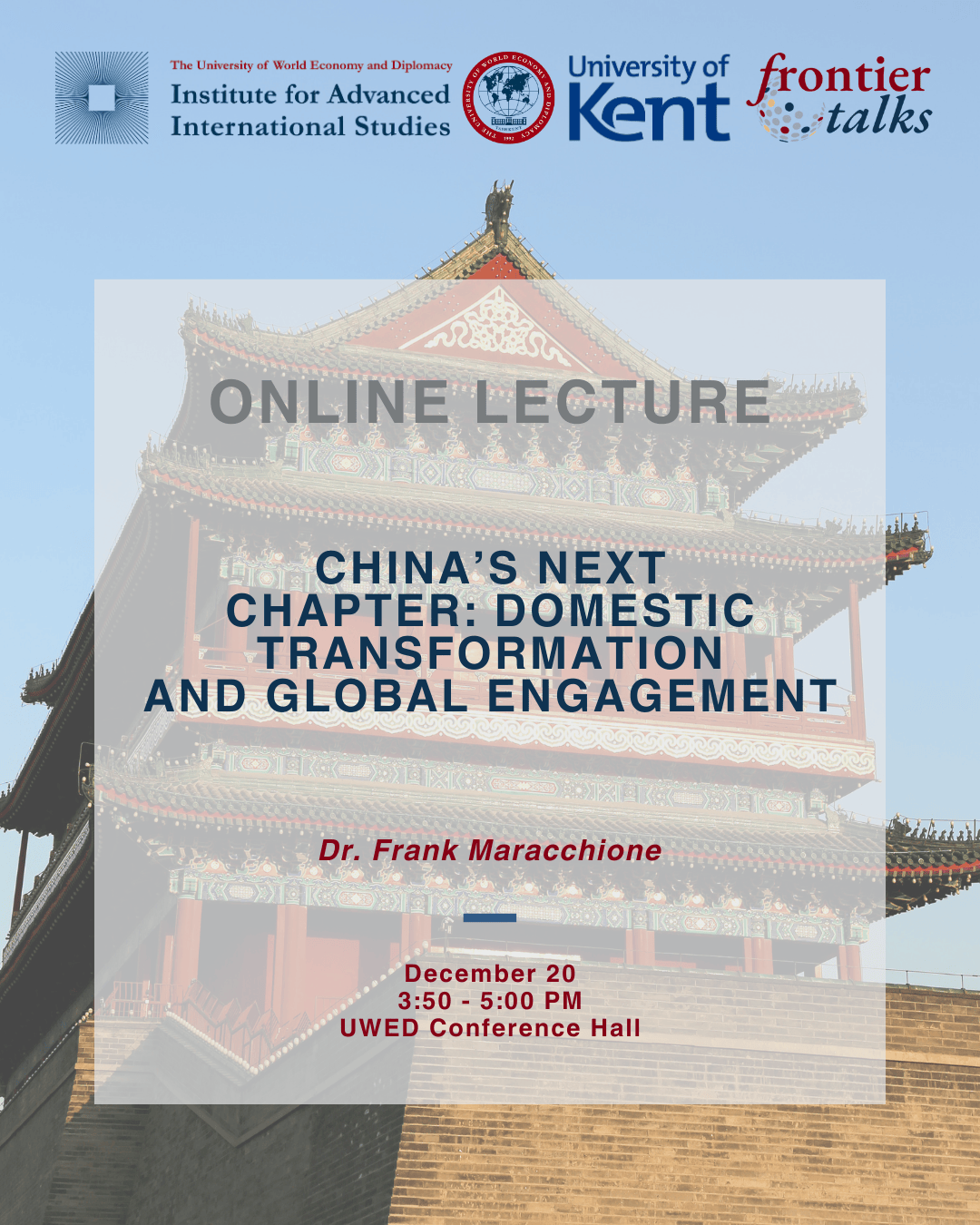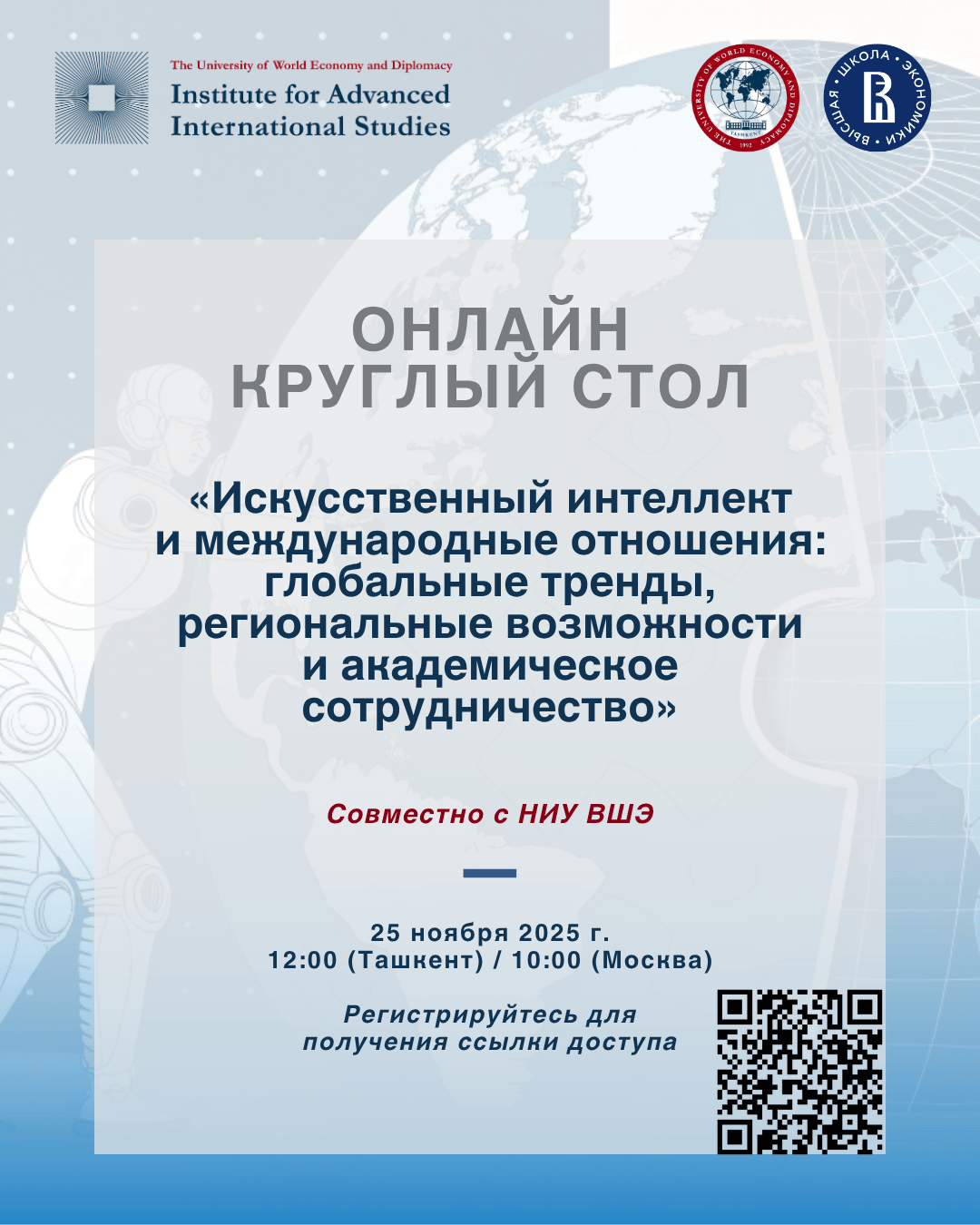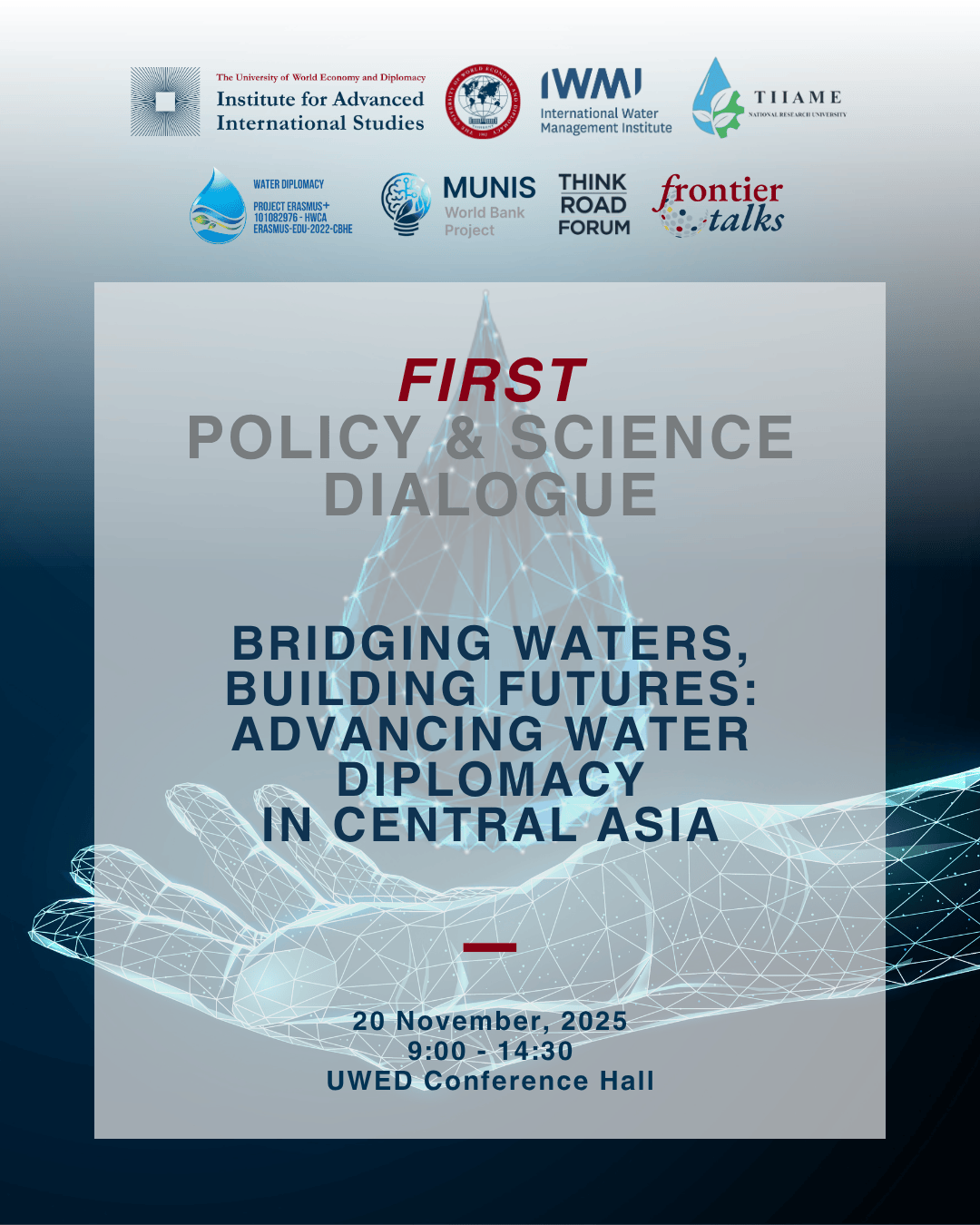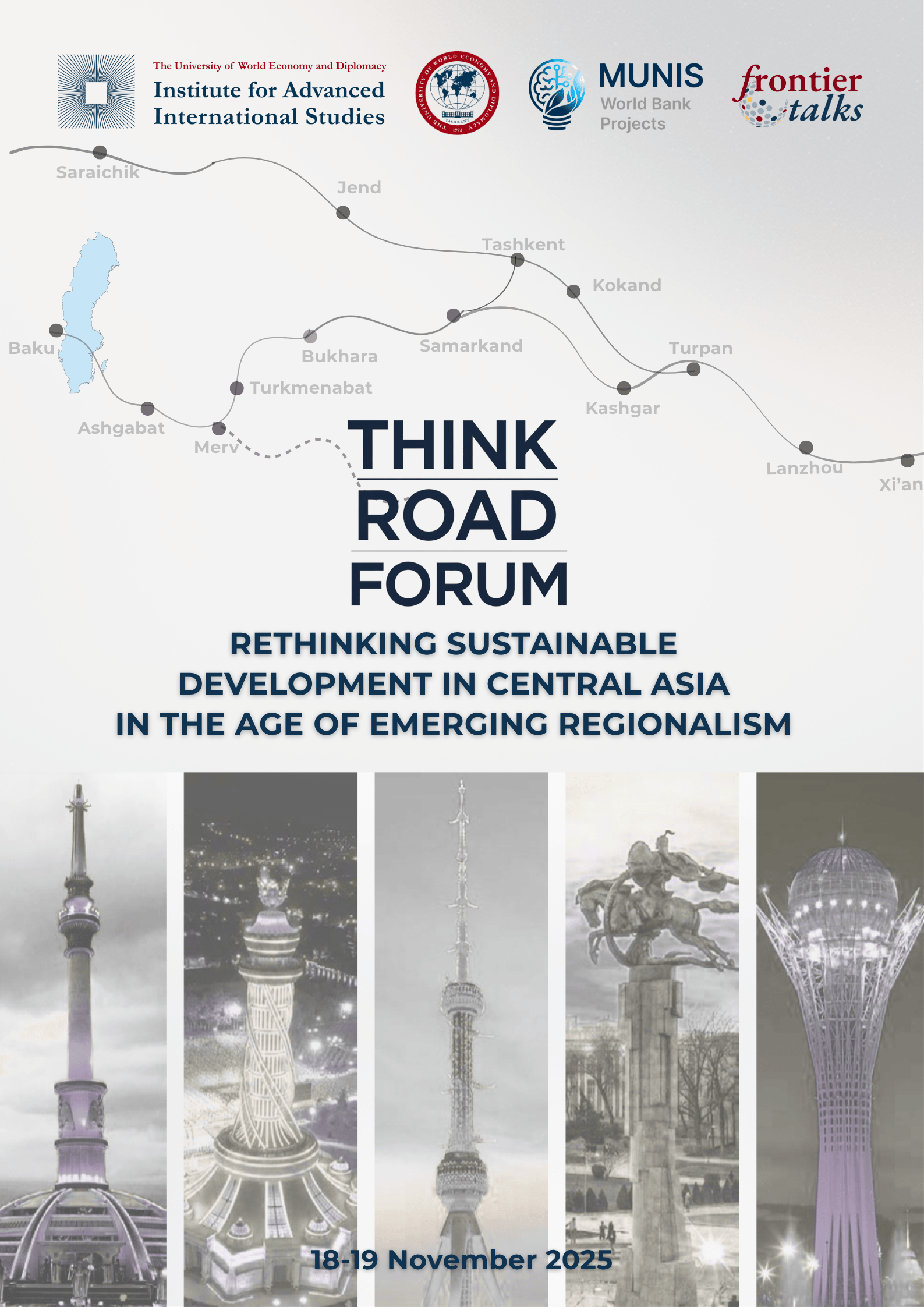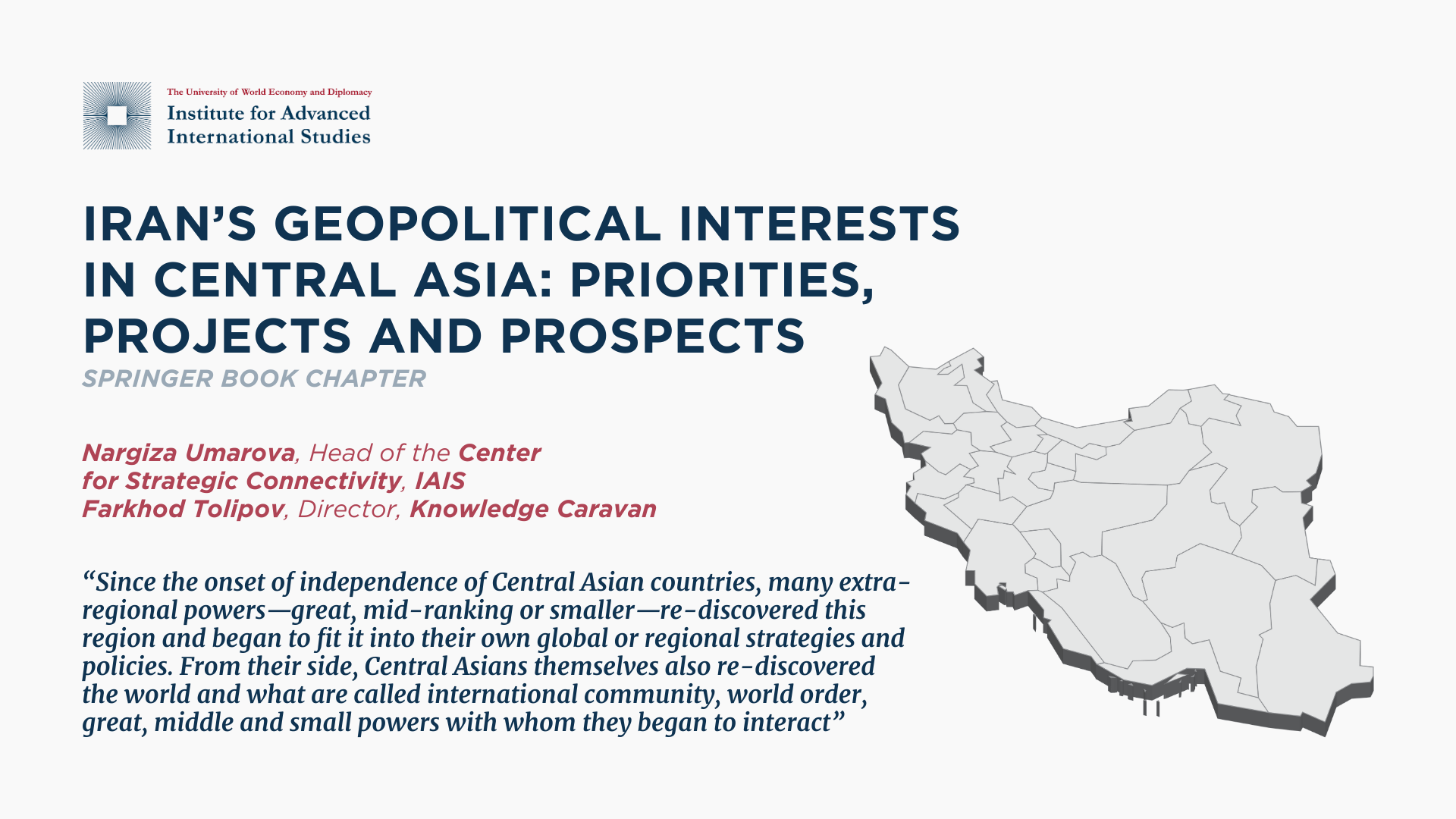
In this insightful chapter, Nargiza Umarova and Farkhod Tolipov explore the evolving geopolitical role of the Islamic Republic of Iran in the Central Asian region. Published by Springer as part of the edited volume
More information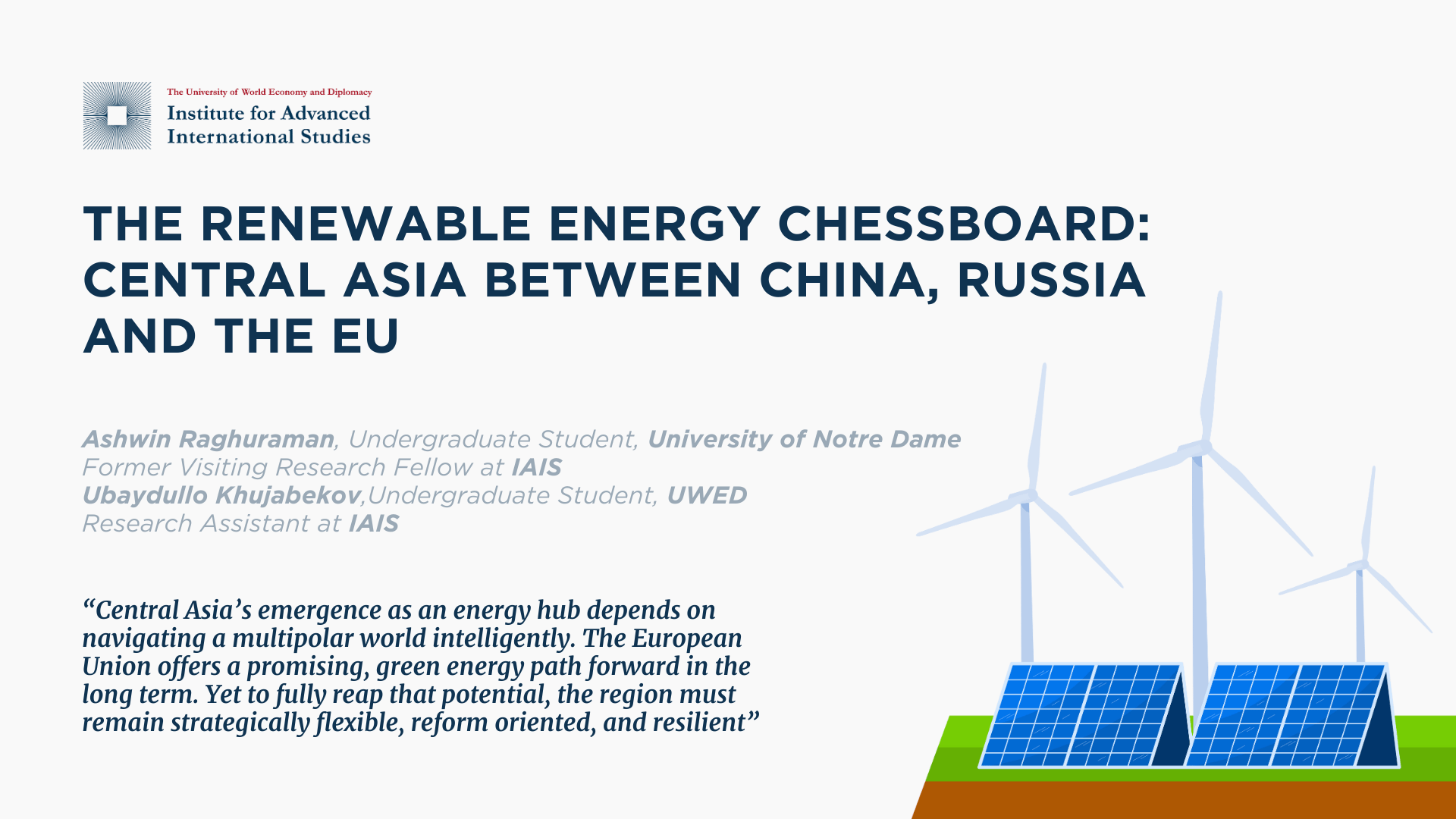
In their article, published by Rosa Luxembourg Foundation’s Representative Office in Central Asia as proceedings of the international conference on “Central Asia in the Face of Global Economic Transformation: Assessment and Forecasting”
More information
The Institute for Advanced International Studies (IAIS) at the University of World Economy and Diplomacy (UWED) held a working meeting with a delegation of prominent international experts, focusing on key political, economic and security developments in Central Asia.
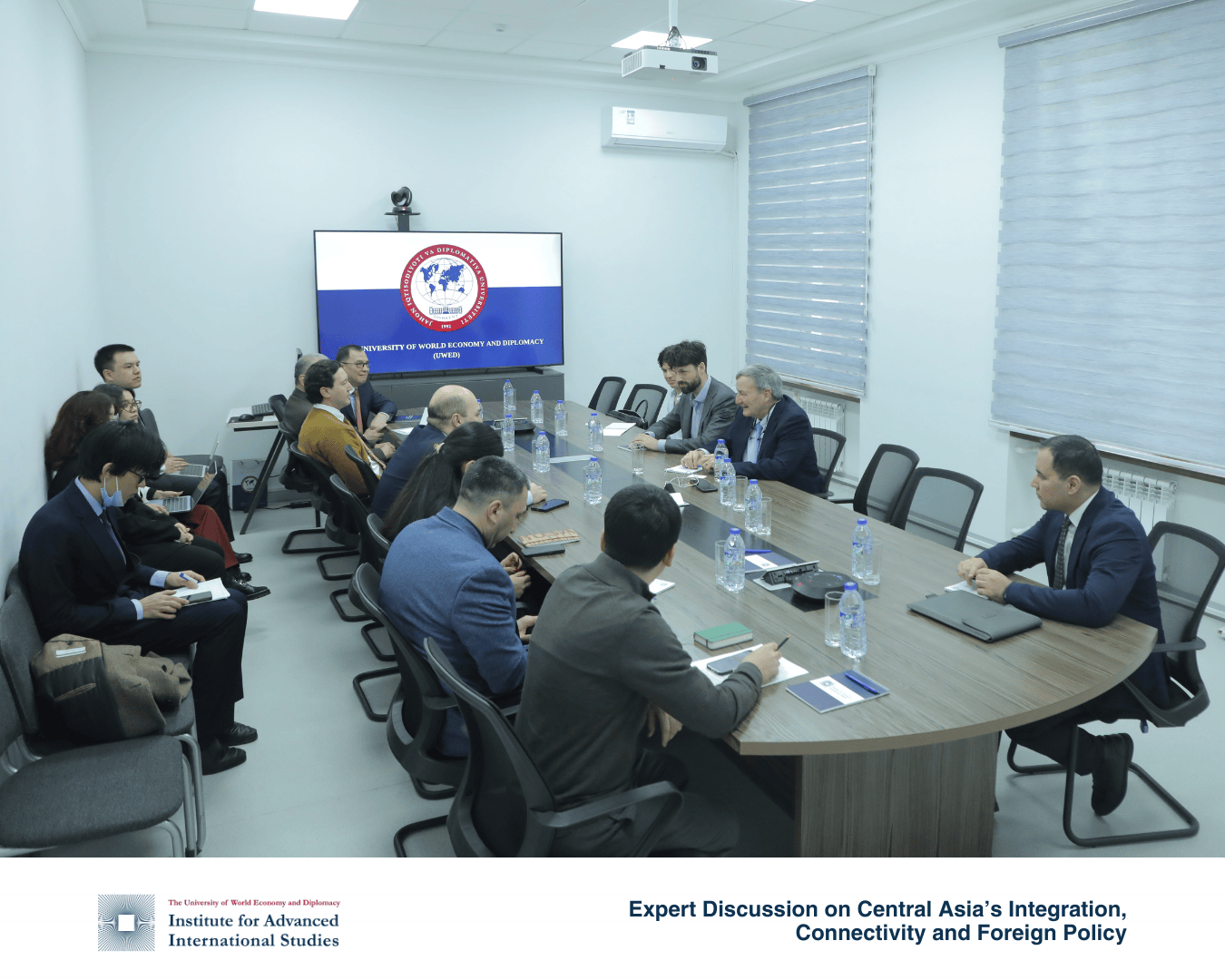
On January 16, the University of World Economy and Diplomacy hosted a round table on the topic of “Internal modernization and foreign policy potential of Uzbekistan: economic transformation, human capital development, and strengthening of international posi
